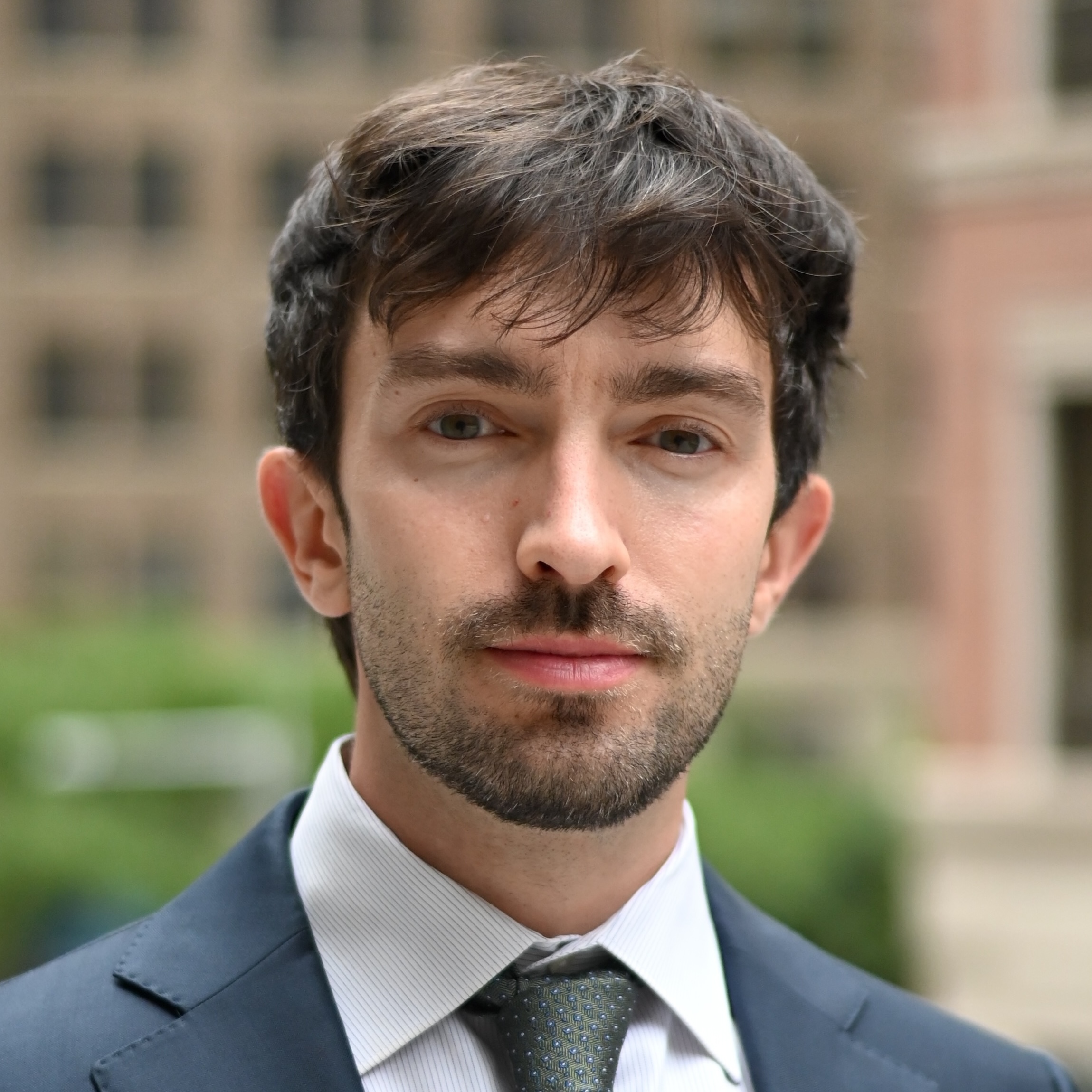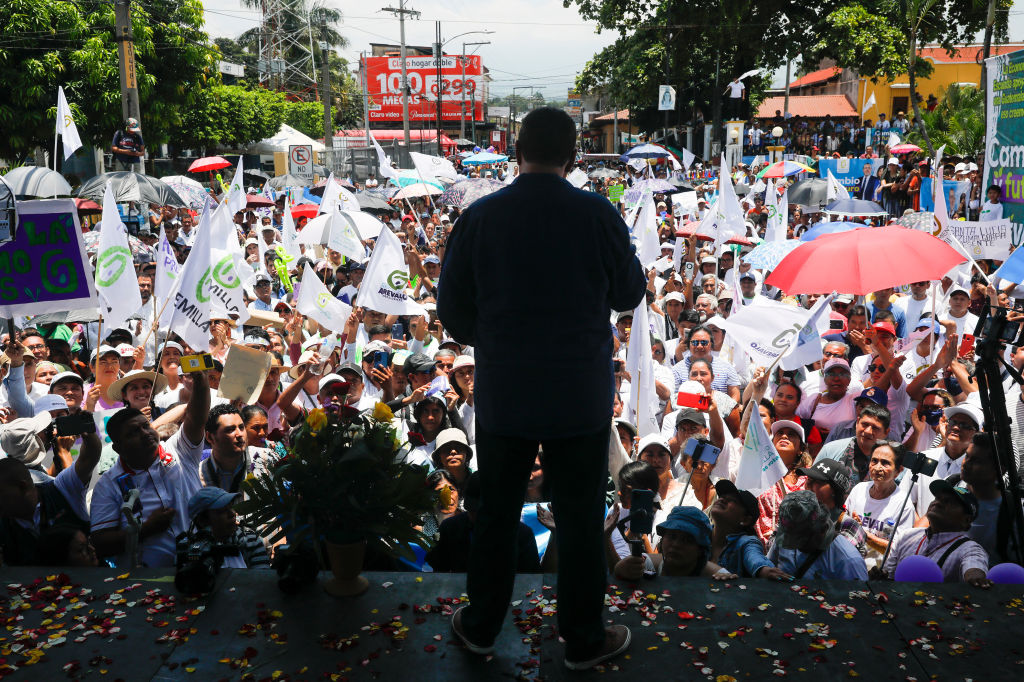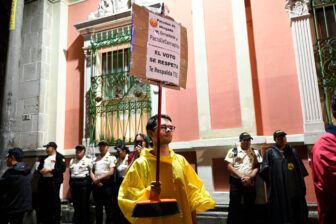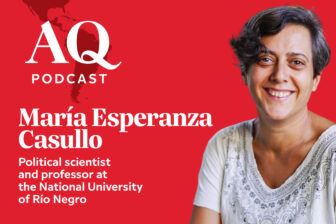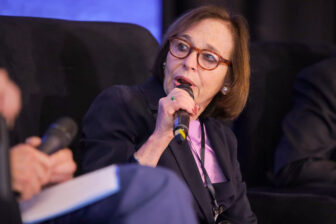LA ALTA MONTAÑA DE SAN JOSÉ PINULA, Guatemala — This rural hamlet sits in a dense maze of hills just 30 miles from the center of Guatemala City, but it feels like it’s a world away. It takes almost half a day of driving along vertically-pitched dirt roads—if you’re lucky—to make it to the town center.
But even there, you can sense Guatemala is in the midst of its most consequential presidential election in decades—one that could shape whether Guatemala’s democracy survives or slips away.
The August 20 runoff pits centrist anti-corruption candidate, Bernardo Arévalo, and his Seed Movement party against conservative establishment rival Sandra Torres. Arévalo—a political outsider who came out of nowhere to finish second in the June 25 first round—promises to clean up politics and govern in a new, transparent way. Meanwhile, Torres has doubled down on conservative social values and touts herself as an experienced pragmatist with the know-how to tackle Guatemala’s widespread poverty and hunger. Lurking over the race is a host of corrupt factions who repeatedly attempted to eliminate Arévalo and his party from the race, but seem to have failed, at least for now, thanks to a broad pro-democratic effort by domestic and international actors.
The latest polls give Arévalo a wide lead of as much as 30 points. Still, to cross the finish line, Arévalo and his party need to win over places historically dominated by traditional politics, like La Alta Montaña—far from the party’s base among the new middle class that lives in and around Guatemala City and other urban centers.
I followed three members of congress from Arévalo’s Seed Movement party—all under 40, as tends to be the case for party’s mostly millennial and Gen-Z leadership—to La Alta Montaña on a recent Saturday, where they gathered a few dozen rural community leaders to make their case. Typical of the party’s cash-strapped campaign, we reached the hamlet in four-door sedans and borrowed trucks that were just barely up to the task.
Beside a cement building plastered in the green and white of Torres’ National Unity of Hope (UNE) party, Congresswoman Victoria Palala, in office since 2019, took the mic and promised the rural leaders that Arévalo would govern differently than past presidents: no more buying votes in Congress, trading cabinet positions for political support, or awarding corrupt public contracts. If the Seed Movement party—often called Semilla in Guatemala—has to go it alone with just 23 of 160 seats in Congress, so be it. They would still fight for cheaper and more accessible health care and better schools. “It would be lying to you to say that in four years, we can do everything,” she told the gathered leaders. “But we can lay the groundwork, and make the first steps toward change.”
This message of a new, less transactional style of politics—even if it means confronting major obstacles—hit home among a crowd that had little faith left in traditional politics or the state. “Zero corruption—that’s everything. It’s a cancer that is destroying this country,” said Roberto Gramajo, a community leader from nearby Monte Redondo.
Although Torres has focused her messaging in the final weeks of the campaign on what she perceives as Arévalo’s threat to conservative social values, the Catholic and evangelical attendees at the meeting seemed less concerned with the specter of gender ideology or marriage equality than with curbing graft, or fixing broken health and education systems. “I trust first in God, and second in Semilla,” said Ana, Roberto’s wife. The Seed Movement politicians’ relative youth was an asset, not a liability, several people in the crowd said; any older or more experienced, and they might already have been corrupted by wheeling, dealing and bribe-taking of traditional politics. “You will be blocked in Congress,” one rural leader told the Semilla Movement speakers, “but we will support you.”
On another hillside on the opposite side of Guatemala City, in the small town of San Lucas de Sacatepéquez, a much bigger-budget rally for Torres’ UNE party swung into full motion. Three pickup trucks weighed down with boxes of food rolled up to the central plaza, where the UNE mayor kicked off the rally with hundreds in attendance. In recent weeks, mayors from Torres’ UNE party and the party of President Alejandro Giammattei have emerged as the lynchpin of her electoral strategy. If Torres has any hope of closing the gap with Arévalo, it will be with the support of mayors, who could roll out resources and cash to get Torres voters to the polls in large numbers on August 20.
The UNE rally featured a public prayer session, a magic and fireworks show, and a salsa band before any mention was made of politics. But when the UNE mayor did remind voters to cast a vote for Torres, the otherwise-noisy crowd fell silent, with a few stray “boos” ringing out. “Supporting the UNE is like religion or football,” Edgar Ramirez, a 65-year-old municipal worker in attendance told me as he milled around with friends and neighbors. “But at the end of the day, we need to make our own decisions. Nine in ten people here will vote for Semilla, but out of fear, they won’t say it.”
Despite a vast financial advantage over her rival and much more political experience, Torres, who lost the last two presidential runoffs by margins of over ten points, again appears to be limping toward the finish line. A political chameleon, Torres has gone through several self-reinventions: Most recently, she pivoted away from the center-left economic populism that built her a base among Guatemala’s rural poor and earned the enmity of traditional business elites when she was first lady (2008-11). She now styles herself as a hardline social conservative in alliance with evangelical churches and the far-right Association of Military Veterans of Guatemala.
For Adim Maldonado, a 33-year-old UNE member of congress and close aide to Torres, the conservative shift by the UNE was a long time coming. He told me Torres sees the Guatemalan state as badly damaged by years of “disorder” following 2015, when mass protests forced then-President Otto Pérez Molina to resign and were followed by the election of political outsider and comedian, Jimmy Morales. “In 2015, we elected a non-politician. In 2019, a halfway politician,” said Maldonado, referring to Giammattei. Maldonado and others in his party see the Seed Movement party as similarly dangerously inexperienced, and as harboring a leftist vision of social transformation that goes far beyond what it has described on the campaign trail.
But the idea that politics has become too anti-establishment, or that Guatemalans are eager to return to earlier times, is a hard sell in a country fed up with gutted roads, sky-high electricity and health care costs, and corruption scandals that seem to go on erupting one after the next. The UNE’s close alignment with Giammattei in Congress since 2020 raise doubts about her promises to deliver change.
Still, the days until August 20—and afterwards—might be some of the most uncertain and tense since Guatemala’s return to democracy. At the Seed Movement’s closing rally, on August 16 in Guatemala City’s Central Plaza, Arévalo spoke to a crowd of thousands, laying out his anti-corruption agenda and laying into his opponents among the traditional political class, including Torres. After the June 25 first-round election, losing parties and Guatemala’s attorney general, sanctioned by the United States for corruption, launched a legal battle that nearly eliminated Arévalo and his party from the race. “Their threats don’t scare us anymore, their accusations don’t scare us anymore,” Arévalo bellowed.
But there is still cause for concern. If Arévalo wins on August 20, there is a high chance that the days to come will be marked not by celebrations, but by new politically-motivated criminal cases, attempts to nullify votes, or worse. Although Arévalo took the stage with minimal security, members of the Seed Movement party have in recent weeks been contacted unofficially by civilian and military intelligence officials, who shared information on several possible plots against him. There is a pervasive feeling everywhere you go that the country is hurtling toward an inflection point, much like in past pivotal years: democratization in 1944, the military coup of 1954, or the mass protests of 2015. Come August 20 and afterwards, anything—for good or ill—could happen.


